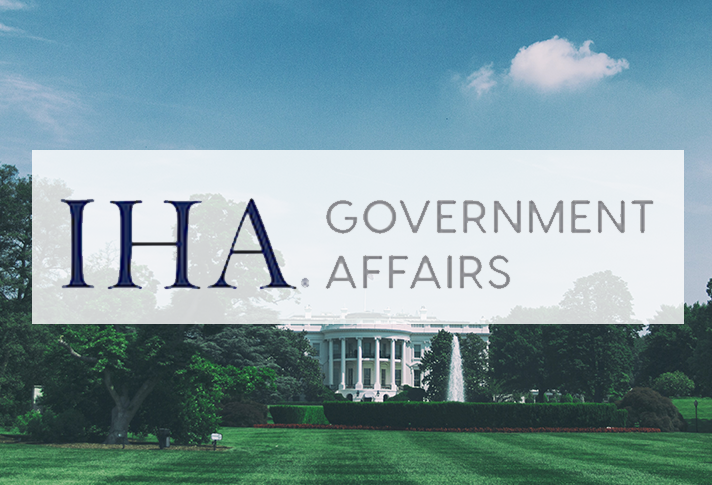This special report is to update previous editions with information on the latest congressional legislation (“COVID 3.5”) and details concerning earlier bills and administrative actions.
Paycheck Protection Program and Health Care Enhancement Act, H.R. 266, or (“COVID 3.5”):
On April 24, the President signed H.R. 266 to appropriate some $484 billion in additional federal funding for coronavirus relief. The majority of the funds ($310 billion) is to replenish the Paycheck Protection Program (PPP) for small business loans after the initial $349 billion in the CARES Act ran out.
Because of reports of larger businesses using the PPP due to its small business threshold of 500 or fewer employees at any one location, H.R. 266 directs $60 billion of the $310 billion to what are considered to be more “small business friendly” lenders. As such, $30 billion goes to community lenders, small banks and credit unions (lenders with less than $10 billion in assets) and $30 billion to medium-sized banks and credit unions that cater to local businesses (lenders with $10 billion to $50 billion in assets).
In addition to using a local community bank or credit union that’s had success moving PPP loans through the system, small businesses seeking PPP loans also might consider applying through one of the leading fintech lenders approved by the U.S. Treasury (PayPal, Intuit or Square, for example.) Reportedly, these fintech lenders have quickly approved PPP loans with no preexisting relationship required.
It’s also important for small businesses to get the first installment of their loan by May 5 in order to take advantage of the PPP’s eight-week loan forgiveness feature that ends June 30. The eight-weeks begins on the date the lender makes the first loan disbursement to the borrower, and the lender should make the first disbursement no later than 10 calendar days from the date of the loan approval.
In addition to refilling the PPP, H.R. 266 provides $60 billion for the SBA’s Economic Injury Disaster Loan (EIDL) program, including $10 billion in emergency grants, plus $75 billion for hospitals and $25 billion to expand coronavirus testing.
PPP Retroactive Payroll Loan Forgiveness for Specified Time Period:
Per the question “How much of my loan will be forgiven?” on page 3 of Treasury’s PPP Fact Sheet for Borrowers (https://home.treasury.gov/system/files/136/PPP–Fact-Sheet.pdf), the “Re-Hiring” bullet-point states, “You have until June 30, 2020 to restore your full-time employment and salary levels for any changes made between Feb. 15 and April 26, 2020.” This has been construed to mean that for any reductions that occur Feb. 15 – April 26, 2020, borrowers have until June 30, 2020 to restore the number of FTE employees or the amount of total salary and wages to the same level they were on Feb. 15, 2020 to avoid reductions to the forgiveness amount.
DOL Wage and Hour Division Non-Enforcement Period Ends
The Dept. of Labor (DOL) Wage and Hour Division announced April 20, 2020, the end of the temporary period of non-enforcement of paid leave protections under the Families First Coronavirus Response Act (FFCRA), H.R. 6201.
Basic Information on CARES Act Changes to Unemployment Insurance Benefits:
- UI is a state administered benefit with federal requirements overlayed. Even with CARES Act changes, UI will still be provided through state agencies after signing an agreement with DOL.
- To be eligible for UI benefits, an employee must be temporarily or permanently laid off or suffer a reduction in hours. States have some flexibility to interpret the “able, available, and actively looking for work” requirements per the FFCRA, H.R. 6201.
- The CARES Act additional benefit of $600 per week expires July 31, 2020 and is available to employees claiming traditional state UI benefits and some made newly eligible (self-employed workers, independent contractors, and gig workers).
- Individuals who exhaust their traditional 26 weeks of state UI benefits are eligible for an extra 13 weeks (total of 39). If these weeks occur after July 31, 2020, the benefit will only be the traditional state UI benefit without the additional $600.
- Unless a state program says otherwise, an employee who is teleworking for pay or taking paid leave is generally ineligible for UI benefits. The CARES Act also states employees receiving new Pandemic Unemployment Assistance are ineligible if getting paid leave benefits.
Additional Information on Two CARES Act Business Tax Provisions
- Employee Retention Credit: Refundable payroll tax credit equal to 50% of up to $10,000 in wages per employee, including health benefits, paid by certain employers (primarily those with 100 or fewer full-time employees). This is available to an employer if operations were fully or partially suspended due to a COVID-19 shutdown order or if gross receipts declined more than 50% compared with the prior year. Employers are NOT eligible if they receive any PPP loan.
- Five-Year Carry Back of Net Operating Losses (NOLs): Firms may take NOLs for 2018-2020 and carry back those losses five years. These benefits are extended to pass-through businesses and the CARES Act also suspends the Tax Cuts and Jobs Act’s excess business loss disallowance rule.



